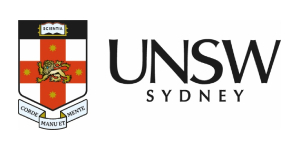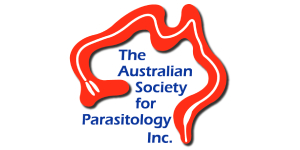ECR Breakfast – Career Paths in Science
Monday 19 February | 7:45 am – 8:40 am
Venue: Heritage Ballroom, Mantra Lorne
Cost: The ECR Breakfast fee is included in the cost of full registration. Breakfast will be provided. Registration required.
Proudly sponsored by

This breakfast is catered to postgrads (Masters/PhD) and postdocs of any stage and will be hosted by Jake Baum and Freddy Frischknecht. The event will include discussion opportunities with mentors from a diversity of career paths, held over a delicious breakfast.
 Freddy Frischknecht
Freddy Frischknecht
Professor Frischknecht studied biochemistry at the Free University of Berlin and did his PhD at the European Molecular Biology Laboratory in Heidelberg working on how poxviruses use the actin cytoskeleton to spread from cell to cell. For his postdoc he joined the Institut Pasteur in Paris with an EMBO and an HFSP fellowship working on in vivo imaging of the migration of Plasmodium sporozoites during transmission of malaria. In 2005 he started his lab at the University of Heidelberg with a focus on understanding the mechanisms of sporozoite migration. The lab uses reverse genetics, advanced imaging and biophysics methods and also aims to generate genetically attenuated parasites for experimental vaccination. In 2014 he became full professor and in 2022 EMBO member.
 Jake Baum
Jake Baum
Professor Jake Baum studied biological sciences and biological anthropology at Oxford University prior to doing a PhD at the London School of Hygiene and Tropical Medicine, working on coevolutionary population genetics between malaria parasites and humans. He moved to Melbourne in 2003 to complete a postdoc with Alan Cowman at the WEHI to work on the cell biology of blood stage malaria (invasion), before starting his own lab in 2010. After diversifying into parasite lifecycle cell biology, in 2013 he moved back to the UK to set up a new lab at Imperial College London, developing programs on malaria diagnostics, drug discovery and vaccinology. He was appointed full Professor in 2017 and inaugural Director of the Imperial College Institute of Infection in 2020. Most recently (2022), hopefully for the last time!, he moved back to Australia, this time to UNSW Sydney, where he took up the role as Head of School, Biomedical Sciences whilst also running a new lab exclusively focussed on malaria parasite transmission biology and next generation vaccinology. Eclectic in focus, the Baum lab (www.baumlab.com) has enjoyed several productive industry partnerships (GSK, Novartis and Google) and received generous research funding (often with international collaborators) from several funding agencies including the Gates Foundation, NIH, HFSPO, Wellcome, UK MRC and the Australian NHMRC.
Drug Discovery – Lunch Session
Tuesday 20 February | 1:15 pm – 2:30 pm
Venue: Heritage Ballroom, Mantra Lorne
Cost: The workshop is included in the cost of all registration types. Lunch will be provided.
Proudly sponsored by

Come out and learn about the mechanics of drug discovery from an experienced drug hunter from the pharma industry. John has over 25 years of experience working as a medicinal chemist primarily in the infectious disease space and he is a committed mentor of next generation scientists. His presentation will focus on the drug discovery process from target identification to drug approval with an emphasis on his work in the preclinical space. General topics such as lead optimization, cost, patenting strategies will be covered and supplemented with case study examples.

John A. McCauley
John A. McCauley joined MSD, West Point, Pa., in 1998 and is currently a Senior Director in the Department of Medicinal Chemistry. Over the past 25 years, John and his group have been involved in the design and synthesis of fifteen compounds that have entered clinical development, including the combination therapy ZEPATIER (elbasvir/grazoprevir) for the treatment of hepatitis C virus infection and MK-7602, a Plasmepsin IX/X dual inhibitor for potential treatment of malaria. John currently has responsibility for Infectious Disease and Neglected Tropical Disease programs. He received a Ph.D. in organic chemistry from the University of Pennsylvania in the research group of Professor Amos B. Smith and worked with Professor Yoshito Kishi at Harvard University as an NIH postdoctoral fellow before beginning his career at MSD.

Introduction to molecular surveillance for malaria control: From the laboratory scientist to the decision-maker
Wednesday 21 February | 1:00 pm – 2:10 pm
Venue: Heritage Ballroom, Mantra Lorne
Cost: The workshop is included in the cost of all registration types. Lunch will be provided.
Proudly sponsored by

Several public health ‘use cases’ for malaria genetic epidemiology have now been described and there has been a rapid expansion of molecular surveillance activities in malaria endemic countries. Using sophisticated genotyping approaches and population genetic analyses, genetic epidemiologists can now detect the sources of outbreaks, classify, and map the connectivity of transmission zones, monitor the impact of control efforts, and track the emergence and spread of drug resistance. This information provides valuable additional data beyond traditional epidemiological measures, allowing malaria control programs to plan more efficient and targeted interventions to control and eliminate the disease.
Please join us for this lunchtime workshop focused on malaria molecular surveillance: what it is, why it’s important, and how to deliver actionable information to decision makers in malaria control programs to ensure effective translation of molecular data. The workshop will highlight the enormous potential and opportunities in this field through presentations and a panel discussion featuring several experts.
Moderator:
 Dr. Estee Torok
Dr. Estee Torok
Dr Estée Török is Senior Program Officer in Surveillance, Data & Epidemiology in Malaria / Global Health at the Bill & Melinda Gates Foundation. She is also an academic infectious diseases physician and microbiologist at Cambridge University Hospitals NHS Foundation Trust, and an Affiliated Associate Professor at the University of Cambridge. She qualified in medicine from the Universities of Oxford and London, trained in Infectious Diseases and Microbiology in Oxford, and conducted her PhD research at the Oxford University Clinical Research Unit in Vietnam. She has a lifelong interest in global health, with over 20 years’ clinical research experience in malaria, TB, HIV, viral hepatitis, antimicrobial resistance, and COVID-19. Over the past decade her research has focussed on using genome sequencing to investigate the evolution and spread of pathogens in hospital and community settings. She has published over 230 scientific research articles and three books. She is highly committed to medical education and training, having led postgraduate training courses in clinical medicine, microbiology, genomics and antimicrobial resistance at the University of Cambridge and the Wellcome Trust Sanger Institute.
Speakers:
Malaria Molecular Surveillance: What, why and how?
 A/Prof Sarah Auburn
A/Prof Sarah Auburn
Associate Professor Sarah Auburn is a molecular biologist, whose passion is using genetics/genomics to learn about the biology and the epidemiology of pathogens and their hosts. In pursuit of this interest, she obtained a PhD in genetic epidemiology from Oxford University, and has acquired research skills transcending field work, molecular laboratory techniques and bioinformatics. In her first post-doc (2007-10), Auburn facilitated the establishment of the Sanger Institute’s first Plasmodium laboratory and gained expertise in malaria genomics. In 2010, she joined Menzies where she leads a genomics program on Plasmodium vivax (P. vivax). A/Prof Auburn’s current research program incorporates molecular biology, population genomics and software development to generate laboratory and analytical tools for molecular surveillance of P. vivax towards elimination of this species. This work leverages on a unique network spearheaded by Auburn in partnership with global collaborators – the vivax Genomic Epidemiology Network (vivaxGEN). This network is made up of more than 16 partner countries and has generated more than 1000 global P. vivax genomes. In recognition of her translational and capacity building work in vivaxGEN and the Asia Pacific Malaria Elimination Network (APMEN), Dr Auburn has been invited to join highly reputable committees including the Australian Centre of Research Excellence in Malaria Elimination.
Population genetics 101 and applications to malaria control in Papua New Guinea
Prof. Alyssa Barry
 Professor Alyssa Barry is Co-Director of the Centre for Innovation in Infectious Disease and Immunology Research (CIIDIR), Head of the Systems Epidemiology of Infection Unit at Deakin University, and Honourary Principal Research Fellow at Burnet Institute. Alyssa received a PhD in Human Molecular Genetics at the University of Melbourne, completed postdoctoral training at Walter and Eliza Hall Institute, University of Oxford and New York University School of Medicine, and has led research programs at Burnet Institute and Walter and Eliza Hall Institute. Alyssa was a Howard Florey Postdoctoral Fellow of the Royal Society, UK, a Howard Florey Centenary Fellow of the NHMRC, Australia, a VESKI Innovation Fellow of the Victorian Government and was awarded the Georgina Sweet Prize for Women in Quantitative Biosciences. She has led or co-led grants funded by the NHMRC and Indo-Pacific Centre for Health Security in Australia, NIH International Centres of Excellence in Malaria Research, USA, Wellcome Trust, UK and Bill and Melinda Gates Foundation. Alyssa’s research program uses population genomics and serology to understand infectious disease, and has a focus on building genomic surveillance capacity for malaria control. She works with a large multidisciplinary network of collaborators including field researchers based in Papua New Guinea, Solomon Islands, Cambodia, Myanmar and Mali, and is a member of the Asia Pacific Malaria Elimination Network (APMEN), the Malaria Genomic Epidemiology Network (MalariaGEN), and the Australian Centre for Research Excellence in Malaria Elimination (ACREME).
Professor Alyssa Barry is Co-Director of the Centre for Innovation in Infectious Disease and Immunology Research (CIIDIR), Head of the Systems Epidemiology of Infection Unit at Deakin University, and Honourary Principal Research Fellow at Burnet Institute. Alyssa received a PhD in Human Molecular Genetics at the University of Melbourne, completed postdoctoral training at Walter and Eliza Hall Institute, University of Oxford and New York University School of Medicine, and has led research programs at Burnet Institute and Walter and Eliza Hall Institute. Alyssa was a Howard Florey Postdoctoral Fellow of the Royal Society, UK, a Howard Florey Centenary Fellow of the NHMRC, Australia, a VESKI Innovation Fellow of the Victorian Government and was awarded the Georgina Sweet Prize for Women in Quantitative Biosciences. She has led or co-led grants funded by the NHMRC and Indo-Pacific Centre for Health Security in Australia, NIH International Centres of Excellence in Malaria Research, USA, Wellcome Trust, UK and Bill and Melinda Gates Foundation. Alyssa’s research program uses population genomics and serology to understand infectious disease, and has a focus on building genomic surveillance capacity for malaria control. She works with a large multidisciplinary network of collaborators including field researchers based in Papua New Guinea, Solomon Islands, Cambodia, Myanmar and Mali, and is a member of the Asia Pacific Malaria Elimination Network (APMEN), the Malaria Genomic Epidemiology Network (MalariaGEN), and the Australian Centre for Research Excellence in Malaria Elimination (ACREME).
Building the capacity for malaria molecular surveillance in Africa: Experience of integrating genomic surveillance in the Malaria Control Programme in Tanzania
 Dr. Deus Ishengoma
Dr. Deus Ishengoma
Deus Ishengoma is a Principal Research Scientist, the head of Genomics Laboratory at the National Institute for Medical Research (NIMR), and a Professor at Kampala International University in Tanzania. He is currently leading several collaborative projects which are investigating the genomics of malaria parasites, vectors and human genome variations in Tanzania. He is a recipient of several grants and awards including the Allan J. Magill Fellowship of 2019 from the American society of tropical Medicine and hygiene (ASTMH). He is a member of different associations and networks; including the Genomic Epidemiology of Malaria Network (MalariaGEN), the Partnership for Antimalarial Resistance Monitoring in Africa (PARMA) supported by the US. President’s Malaria Initiative (PMI) and ASTMH. He is a co-founder of the Pathogen Diversity Network Africa (PDNA), Tanzania Society of Human Genetics and African Society of Antimicrobial Resistance. Deus has published over 80 publications in peer reviewed journals, several technical reports and policy briefs to support decision and policy making for malaria elimination in Tanzania and beyond. He has trained/ is training over 12 PhD and 6 MSc students, five post-doctoral fellows and interns to build the capacity in genomics and bioinformatics in Tanzania and beyond.
Additional panel members:
 A/Prof. Isabella Oyier
A/Prof. Isabella Oyier
Isabella Oyier is the Head of the Biosciences Department at KEMRI-Wellcome Trust Research Program (KWTRP), an Associate Professor, Nuffield Department of Medicine, University of Oxford a Calestous Juma Fellow, funded by BMGF and a Global Research Fellow at Reuben College, University of Oxford. Her current research focuses on integrating malaria molecular epidemiology into routine surveillance in Kenya. A project that partners with the Division of National Malaria Programme to implement malaria molecular surveillance activities. During the COVID-19 pandemic, she led the COVID-19 testing for the Coastal region. KWTRP is a regional COVID-19 genomic surveillance reference lab for Africa CDC and WHO-Afro and she leads and coordinates this effort. In addition, she is coordinating the scale up COVID-19 immunological surveillance in the East Africa region, to determine genetic variants with immune escape potential.
 Dr. Nguyen Thanh Thuy Nhien
Dr. Nguyen Thanh Thuy Nhien
Dr Thuy Nhien is currently Vice Head of Malaria Research at OUCRU-VN. Dr Thuy Nhien received PhD in Life Sciences (in field of Malaria Molecular Biology) in Kyoto, Japan and joined OUCRU in 2010. She has experienced as an investigator involved in many malaria clinical trials, community based studies, laboratory researches related to anti-malarial drug resistance, new drugs development, genetic epidemiology and has supervised OUCRU Malaria laboratory. She has experienced working with both industrial and academic partners, in both hospitals and in the field sites. Dr Thuy Nhien is leading malaria genetic surveillance activities in Vietnam, in close collaboration with Vietnam NMCPs, GenRe-Mekong project, MORU, Wellcome Sanger Institute and Menzies to monitor and understand how drug resistance emerges and spreads in malaria parasites and provide timely quality information to support drug policy decision marking. Dr Thuy Nhien’s current research focuses on drug resistance molecular markers, molecular epidemiology of drug resistance, sero-surveillance and malaria elimination in Vietnam and GMS.
